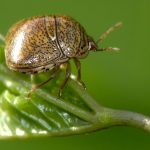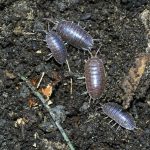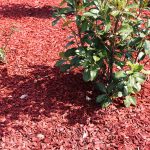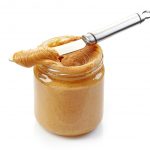As a homeowner, I’m always looking for ways to keep my landscaping looking healthy and attractive. One way I like to do this is by using mulch to enhance my garden beds. Unfortunately, mulch can attract various types of bugs. In this article, I’ll be sharing some tips on how to keep bugs out of mulch and maintain a bug-free landscaping.
Types of Mulch
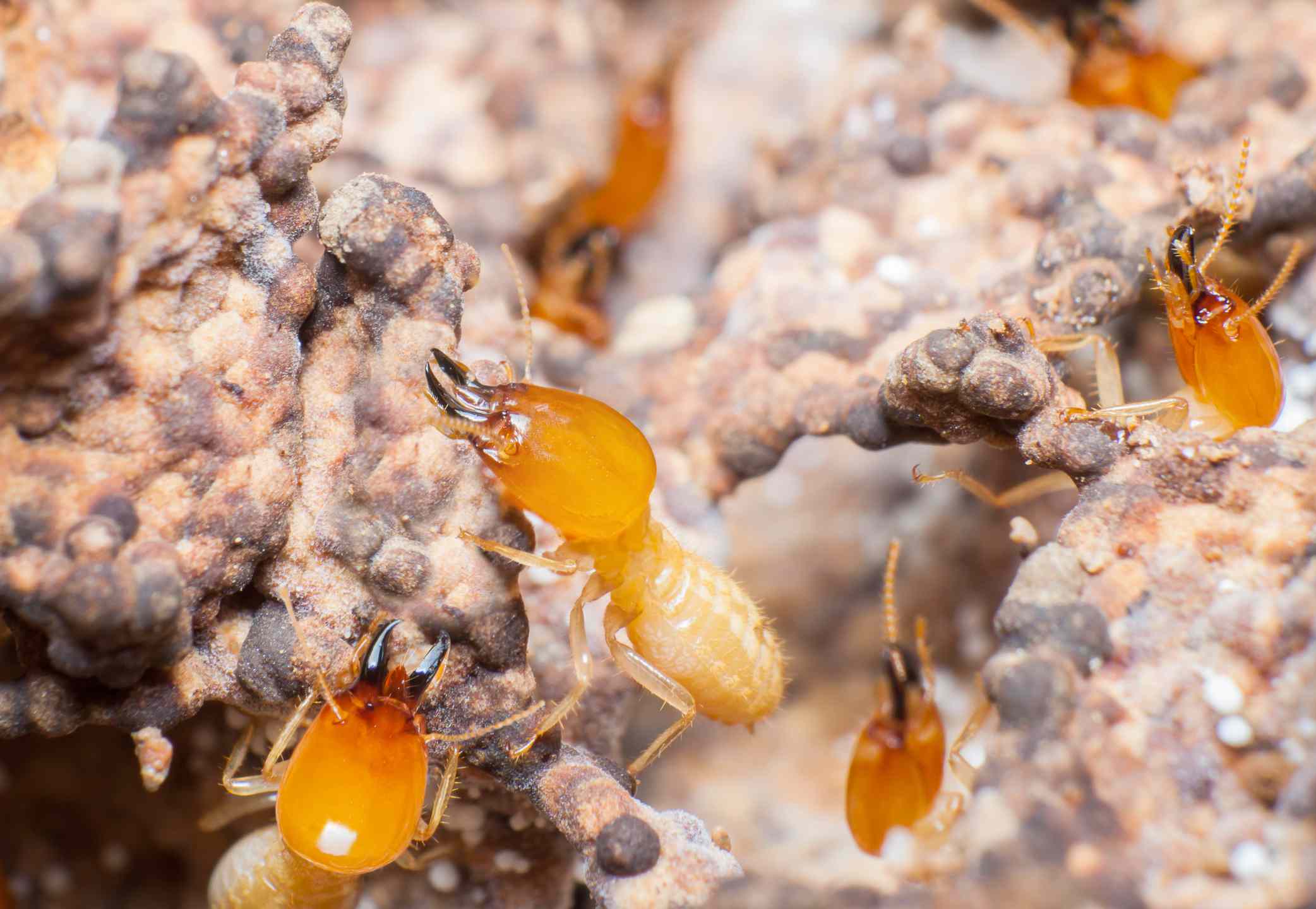
I’m often asked what are the different types of mulch available and how do they help to keep bugs out? In this article, I’m going to talk about the types of mulch and how they can be used to keep bugs at bay.
Organic mulch is the most popular type of mulch and is made from natural materials such as bark, wood chips, leaves, grass clippings, and compost. This type of mulch helps to provide nutrients to your plants and soil and also helps to keep moisture in the soil. It also works as an effective barrier against bugs and other pests.
Inorganic mulch is made from synthetic materials such as plastic, rubber, and fabric. These types of mulch are not as effective at providing nutrients to your plants and soil, but they are effective at keeping moisture in and blocking weeds from growing. They can also be used to keep bugs from entering your garden.
Stone mulch is another type of mulch that is made from stones, gravel, and other materials. This type of mulch works well at keeping moisture in the soil and blocking weeds, but it is not as effective at keeping bugs out.
No matter which type of mulch you choose, it is important to make sure that it is applied correctly and at the right depth. This will help to keep bugs out and create a healthier environment for your plants.
Natural Bug Repellents
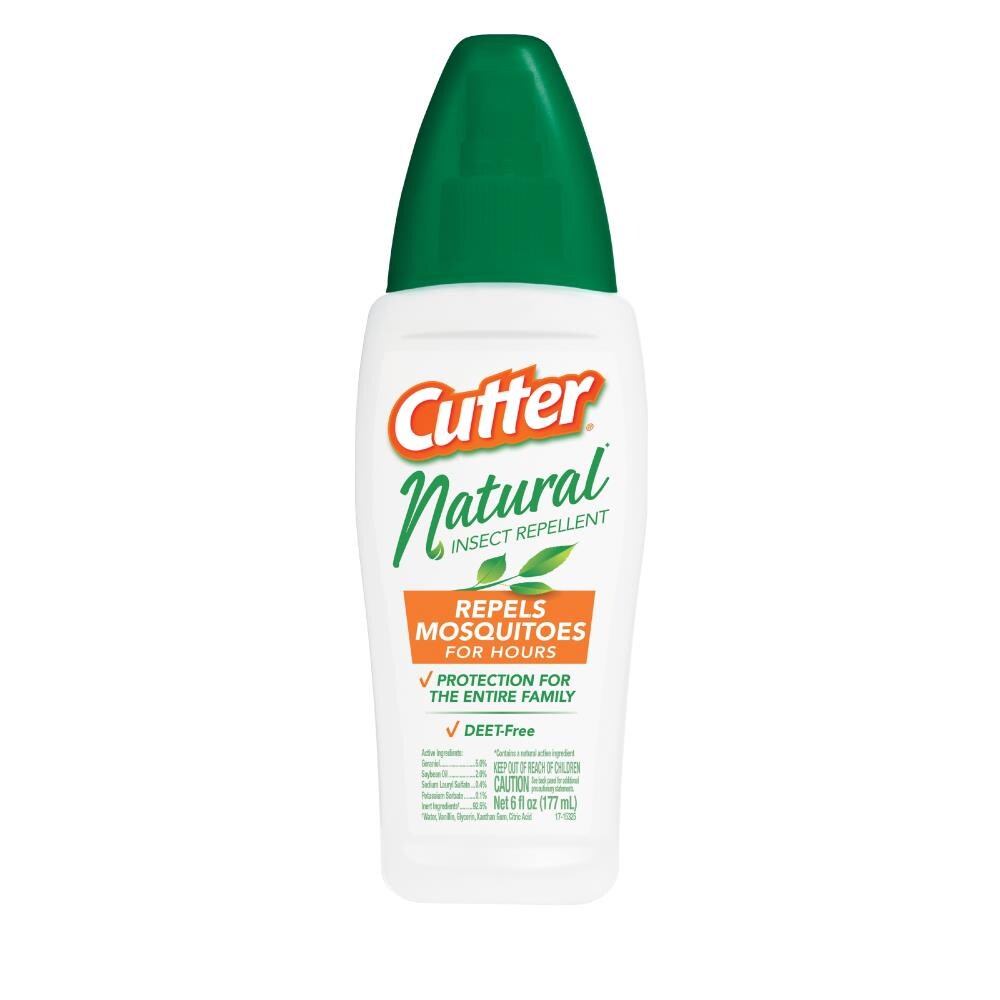
- Sprinkle diatomaceous earth over the mulch. This is a natural insecticide that will not harm the environment.
- Make a garlic spray by combining minced garlic, water, and a few drops of liquid dish soap. Spray this mixture onto the mulch to keep bugs away.
- Sprinkle peppermint or lemon essential oil over the mulch. This will deter bugs from coming near the mulch.
- Mix 1/2 cup water, 1/2 cup vinegar, and 1 tablespoon of liquid dish soap in a spray bottle. Shake well and spray this mixture over the mulch to keep bugs away.
- Plant marigolds around the area of the mulch. The strong smell of the flowers will keep bugs away.
Chemical Bug Repellents

Chemical bug repellents are an effective way to keep bugs out of mulch. A variety of products exist, all designed to repel insects. Most products rely on active ingredients such as DEET, permethrins, or pyrethrins. These active ingredients work by disrupting the insect’s nervous system, causing them to stay away.
Before using any chemical bug repellents, be sure to read the label for safety and application instructions. Some products can be applied directly to the mulch, while others require spraying onto the area surrounding the mulch.
| Active Ingredient | Description |
|---|---|
| DEET | A synthetic compound that repels mosquitoes, ticks, and other insects |
| Permethrins | A synthetic compound that effectively repels fleas, ticks, mosquitoes, and other insects |
| Pyrethrins | A natural insecticide derived from the Chrysanthemum flower that repels a variety of insects |
When using chemical bug repellents, always wear protective clothing and gloves. Avoid contact with skin and eyes, and do not inhale the spray. Be sure to store the product in a safe place, away from children and pets.
Mulching Techniques to Repel Bugs
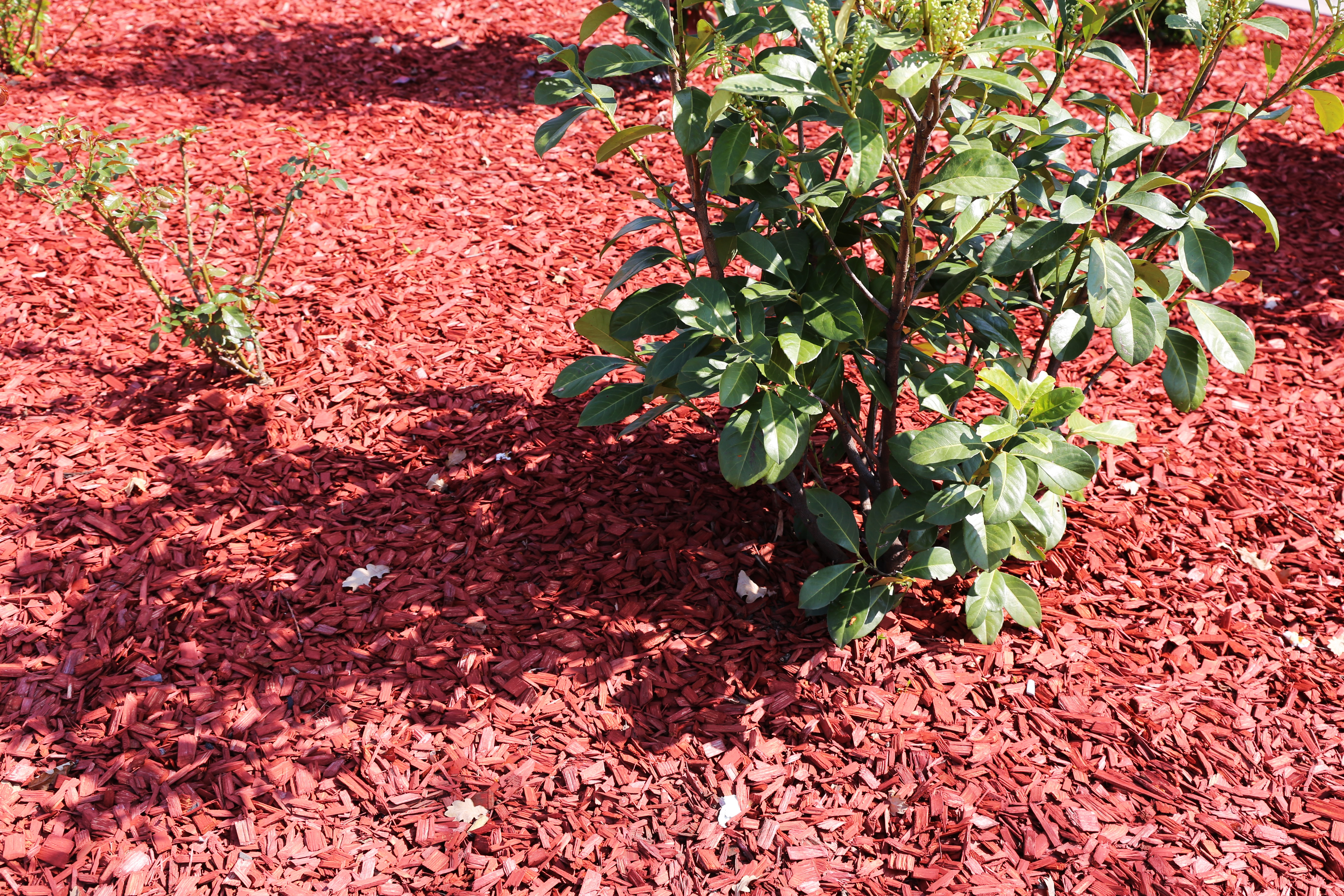
To keep bugs from getting into your mulch, there are a few mulching techniques you can use. One option is to use a layer of diatomaceous earth, which is a natural insect killer. Sprinkle this earthy powder over the mulch, and it will act as a barrier to keep the bugs out. Another option is to use wood chips or bark chips as a top layer on your mulch. These chips create a rough surface which makes it difficult for bugs to traverse.
You can also use mulches that are made with cedar, mint, or citrus oils, as these have natural bug repelling properties. Finally, you can also use insecticides on your mulch. Check the labels of these products to make sure they are designed for use on mulch, and follow the directions carefully. These products can help to keep bugs away, but should be used in moderation.
Mulching Techniques to Attract Beneficial Insects
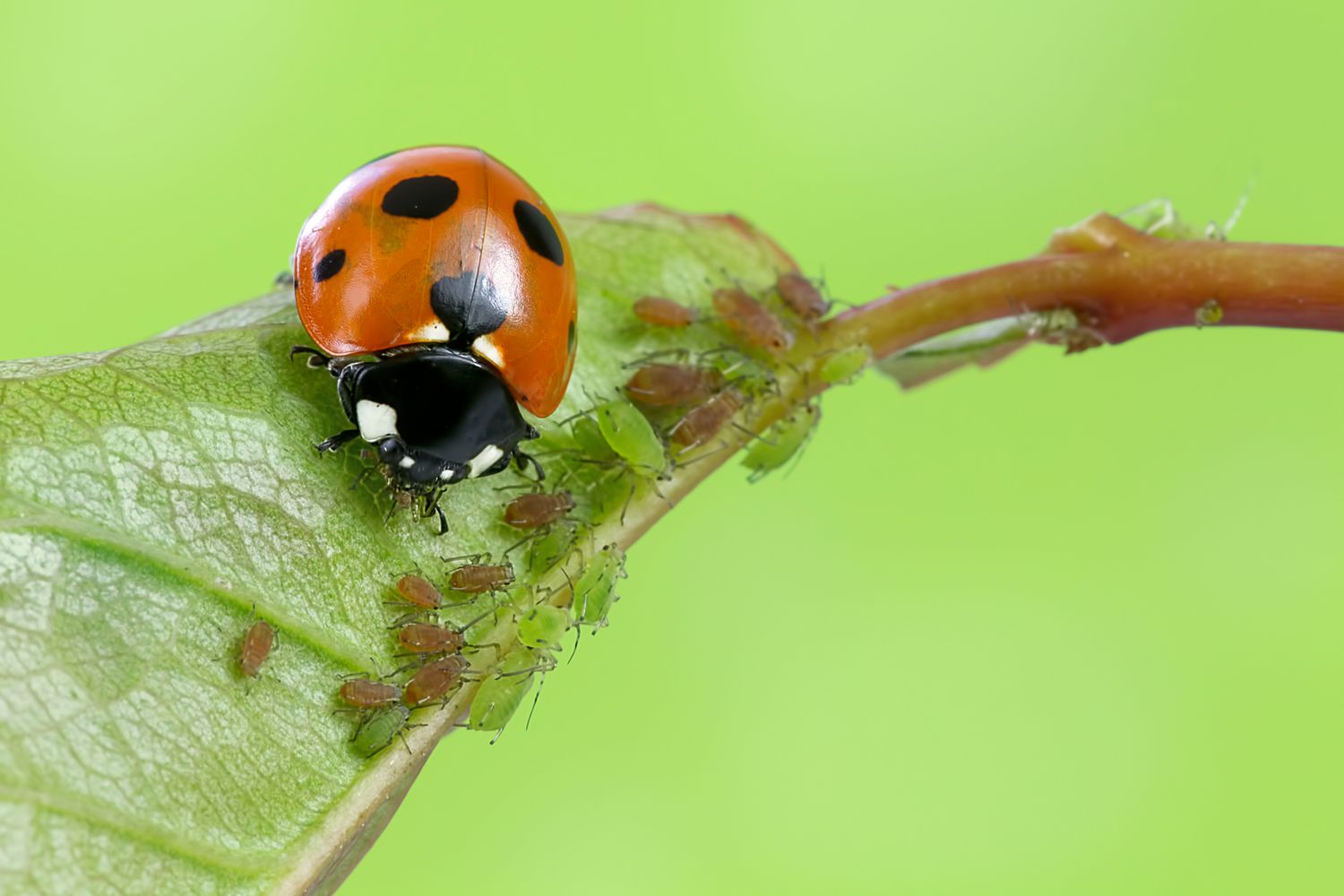
I’m sure you’re familiar with the saying, “the enemy of my enemy is my friend”. Well, this same concept applies to mulching techniques to attract beneficial insects. Beneficial insects like ladybugs and lacewings eat some of the same insects that can be found in mulch, such as aphids and mites. By introducing beneficial insects to the mulch, you can reduce the number of pests that may be living in it.
One of the best ways to attract beneficial insects to the mulch is by using a combination of organic and inorganic mulches. Organic mulches, such as leaves, grass clippings, and wood chips, can provide a food source for beneficial insects. Inorganic mulches, such as gravel or stones, can provide beneficial insects with a place to hide and lay their eggs.
In addition to using a combination of organic and inorganic mulches, you can also use plants that attract beneficial insects. For example, clover, dill, and parsley are all plants that are known to attract beneficial insects. Planting these plants near the mulch can help to attract beneficial insects to the area.
Finally, you can also use certain types of mulches that are specifically designed to attract beneficial insects. These mulches are often made up of plant materials and, in some cases, pieces of wood. The wood pieces provide a food source for the beneficial insects, while the plant materials provide shelter.
By using these mulching techniques to attract beneficial insects, you can reduce the number of pests in your mulch, and create a healthier environment for your plants.
Other Tips to Keep Bugs Out of Mulch
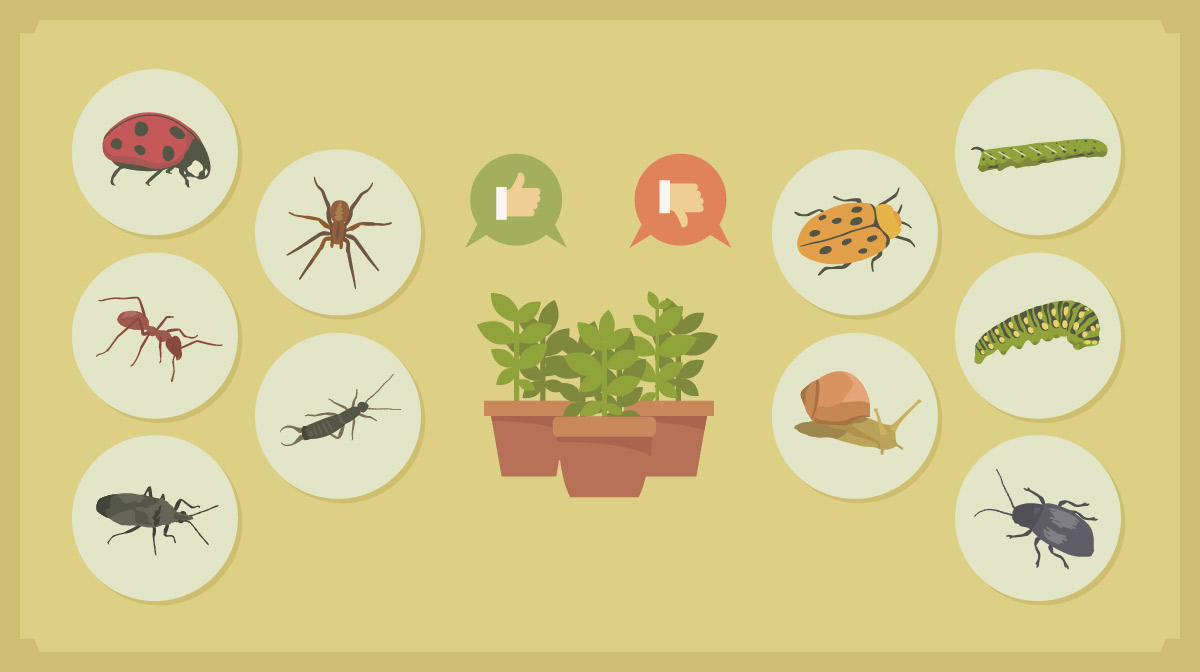
- Dust your mulch regularly with diatomaceous earth. This powder-like substance is a natural insecticide and will help to kill bugs on contact.
- Sprinkle cayenne pepper around the mulch. This will deter bugs from coming near the mulch.
- Plant certain flowers near the mulch, such as marigolds, chrysanthemums and petunias. These flowers naturally repel bugs and they can help to keep bugs away.
- Place a fabric barrier between the mulch and the soil. This will help to keep bugs from burrowing into the mulch.
- Spread a layer of sand over the mulch. This will create an inhospitable environment for bugs, as they will not be able to burrow in the sand.
- Use a hose to spray the mulch with water. This will help to keep bugs away and will also help to keep the mulch moist.
Mulch Maintenance to Keep Bugs Away
I take special care to keep my mulch bug-free. I regularly inspect the mulch, removing any dead or decaying material. Regularly raking or fluffing the mulch helps keep air and moisture circulating, which helps keep bugs away. I also use a mulch barrier, such as a sheet of plastic, to keep bugs from entering the mulch.
I use mulch-specific pesticides, if needed, to keep bugs out. I also use an insecticide spray to keep bugs away from the mulch. I’m careful to always follow the directions on the product label.
I also use organic methods to keep bugs away. This includes planting certain plants that are known to repel bugs, such as marigolds and garlic. I also use natural products such as diatomaceous earth and essential oils.
| Mulch Maintenance | Keep Bugs Away |
|---|---|
| Remove dead/decaying material | Use mulch-specific pesticides |
| Rake/fluff mulch | Use an insecticide spray |
| Use a mulch barrier | Plant bug-repelling plants |
| Use natural products | Use essential oils |
By using these mulch maintenance techniques, I’m able to keep bugs away from my mulch.
Dealing With Existing Bug Infestations
If you already have a bug infestation in your mulch, it is important to get rid of it as soon as possible. Start by treating the mulch with an insecticide that contains bifenthrin. Bifenthrin is an insecticide that can be used to treat mulch and will kill most adult bugs and larvae. Be sure to follow the directions on the label and apply the insecticide in the evening when the bugs are most active.
Another way to deal with existing bug infestations is to introduce beneficial insects into the mulch. These beneficial insects will feed on the pests and help to keep the population low. Be sure to release the beneficial insects in the evening when the pests are most active.
Once the infestation is under control, you can take steps to prevent future bug infestations. This includes removing any standing water in the area, keeping the mulch dry, and adding mulch on a regular basis. Additionally, you can also use insecticides as a preventative measure. When using insecticides, be sure to follow the directions on the label and apply the insecticide in the evening when the bugs are most active.
Frequently Asked Questions
What Mulch Can Be Used to Keep Bugs Away from Landscaping?
Cedar mulch and cypress mulch are the two most effective types for keeping bugs away from landscaping. Cedar mulch is made from the wood of cedar trees, which contains aromatic oils that are off-putting and can repel insects. Cypress mulch is made from the wood of cypress trees, which also produces a strong scent and has been known to repel some insects. Both cedar and cypress mulches are long-lasting, offering lasting protection against bugs.
What methods can be used to prevent bugs from entering mulch?
Installing a physical barrier such as landscape fabric or a screen beneath the mulch can help prevent bugs from entering. Spraying insecticidal soap, diatomaceous earth, neem oil, or organic insecticides can also help deter bugs. Keeping the mulch layer thin and avoiding moist, shady areas can also discourage bugs. Finally, ensuring the mulch is free of debris and organic material will help reduce the attraction of bugs.
Are there any natural ways to repel bugs from mulch?
Mulch provides a great habitat for bugs and other pests, but there are natural methods to keep them away. To deter bugs and other pests, you can use cedar chips, which have a natural repellent property to them. You can also use garlic or hot pepper spray, which will help repel bugs, as well as other natural repellents like diatomaceous earth, neem oil, and citrus oil. To reduce the amount of bugs in your mulch, make sure to keep it dry, keep it away from standing water, and keep it away from the walls of your home.
Is there a way to keep bugs out of mulch without using chemicals?
Using organic mulch such as wood chips and bark can help to deter bugs from mulch. Additionally, keeping mulch away from the foundation of your home, trimming bushes and trees to allow more sunlight, and keeping mulch dry can also help prevent bug infestations. Additionally, introducing beneficial insects such as ladybugs, ground beetles, and predatory mites can help to naturally control bugs in mulch.
How can I keep bugs away from my mulch all season long?
To keep bugs away from mulch all season long, use insecticidal soaps, natural oils, and nematodes. Insecticidal soaps are an effective solution for controlling small, soft-bodied insects like aphids, mealybugs, and spider mites. Natural oils, such as neem oil, can be used to repel and kill a variety of insects. Nematodes are beneficial insects that feed on harmful insects like fleas and grubs. Additionally, keep the mulch dry and remove any debris, as these provide breeding grounds for bugs. Finally, ensure that the mulch is not too thick, as this can create a hospitable environment for bugs.
Conclusion
Mulch is an essential part of landscaping, but it can also attract bugs. By following a few simple steps, you can have a bug-free mulch and a beautiful landscape. Start by choosing the right type of mulch and keep it away from your home and other structures. You can also spray your mulch with insect repellent, add beneficial bugs to the landscape, and use other plants to keep bugs away. With the right strategy, you can enjoy a bug-free landscape.

